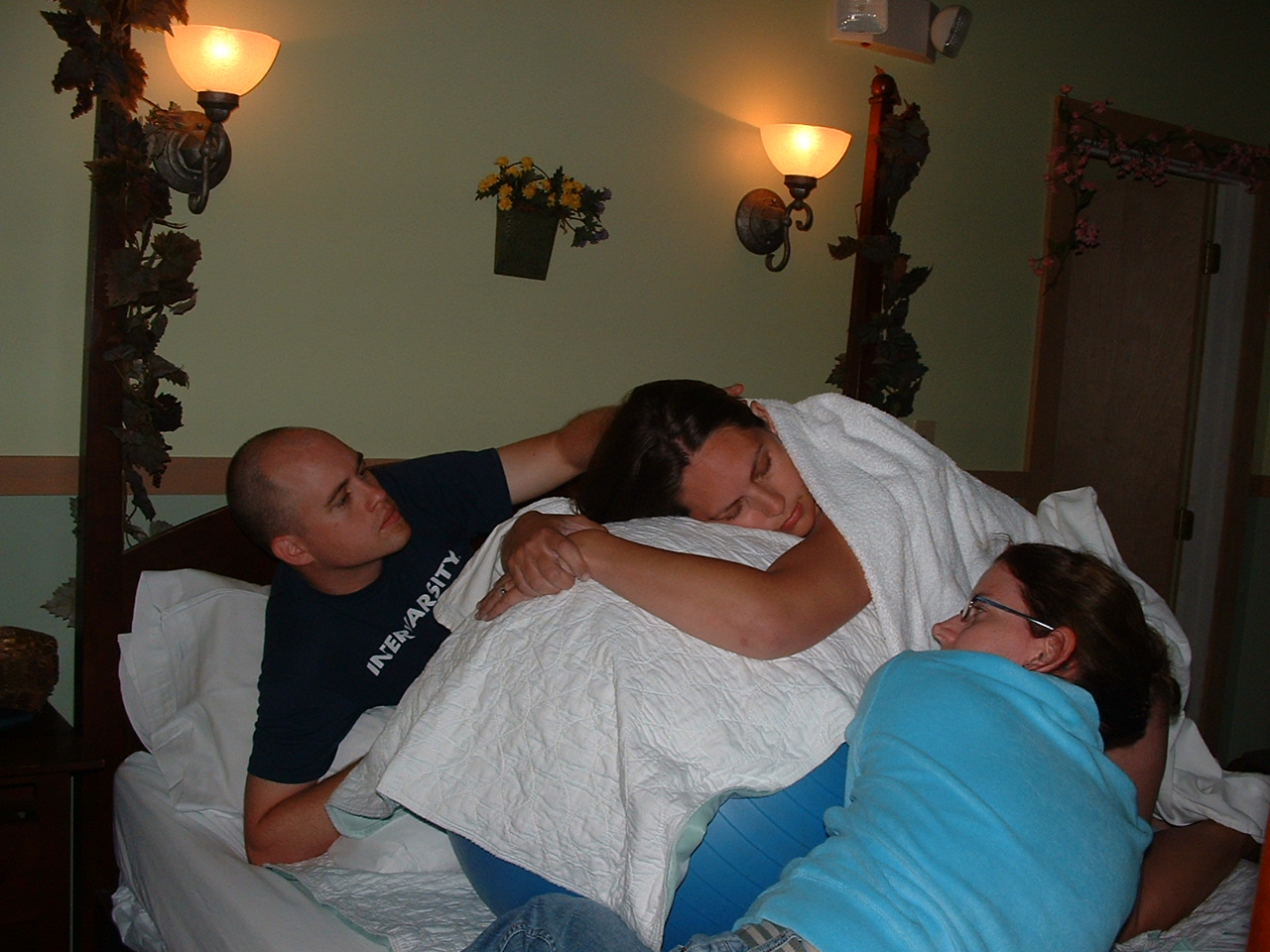 Okay, so maybe it isn’t the ultimate top 5. It is really hard to choose 5 because there are so many things to be prepared for when it comes to labor and birth! These are good ones though–so if you are pregnant for the first time, third time or know someone who is pregnant looking for some labor advice this may help.
Okay, so maybe it isn’t the ultimate top 5. It is really hard to choose 5 because there are so many things to be prepared for when it comes to labor and birth! These are good ones though–so if you are pregnant for the first time, third time or know someone who is pregnant looking for some labor advice this may help.
My philosophy is that you should educate yourself about labor and birth in the same way you would when you buy a car or choose a college. Take an independent childbirth class other than what is offered at the hospital: The Bradley Method, HypnoBirthing, BabyBodyBirth, Birthing From Within, ICEA are all good choices. Try not to wait until the last minute to take a class since some classes are as much as 12 weeks long.
Here are the tips:
1. Have a person committed to being your labor support. Most often it is the husband but some women find comfort in having their mothers, a friend, or hiring a doula to be their labor companion. Also–and this one is really important; tell your labor support to pay attention to YOU–not the electric fetal monitor. You don’t need them to tell you when you are having a contraction or how intense it was– you know because you can feel it. What you need most is for someone to help you relax through the contractions. It is really hard for some people to NOT watch the machines in the room–kind of like when a tv is on in a room–it is hard not to watch it– but when a mom is in labor she needs the attention more than the machine.
2. Don’t go to the hospital too soon. This is probably one of the biggest mistakes that parents make. When it is your first time to have a baby it is exciting and you don’t know what to expect so it is easy to head to the hospital too early. The big problem at arriving too soon is that you begin being held to the hospital’s time table and unfortunately many birth attendants will begin to offer to help “speed things along” by offering pitocin when it really isn’t needed. Meddling with a labor that is doing fine often leads to many other interventions and problems. Heading to the hospital when contractions are a minute long and 5 minutes apart for at least one hour is a good rule of thumb. If you can still walk, talk, and laugh during contractions it is too early to go to the hospital. Because labor patterns vary it is probably better to look at the physical signposts of a mom to help determine when to head out to the hospital. When mom can’t talk during a contraction and starts to need to relax and be quiet between contractions that is usually a good sign to go on to the birth place.
3. If you are shooting for an unmedicated birth practice relaxation techniques for several weeks before the birth. Relaxation techniques can even be helpful for moms who want an epidural. Most doctors allow epidurals when women get to 3 or 4 cm and having some relaxation techniques in your “tool box” of laboring knowledge can help a mom cope with the pain of the contractions. Some things I teach in my class are massage, progressive relaxation, and visual relaxation. Some moms enjoy being read poems, literature, scripture, or listening to some relaxing music while laboring to cope with contractions.
4. When working with contractions make low pitched groaning sounds (like a cow moo) rather than high pitched squeals. Some moms find a lot of relief vocalizing through contractions and the low pitched groans are relaxing. You can practice now if you want. Try making a high pitched squeal and you will find that your shoulders or other parts of your body tense up. Tensing up during a contraction actually causes more pain. The low moans help you release your muscles which makes the contraction less painful.
5. Relax your jaw. Ina May Gaskin, a well-known midwife in Tennesee says that women with a relaxed jaw and mouth have a relaxed bottom and that it helps the cervix open faster. It is easy to grit your teeth when in pain but focusing on keeping that jaw relaxed can speed labor along. Taking a bath, staying upright during labor, getting massaged from your labor supporters can all help the jaw stay relaxed.
I find myself mentioning most of these when asked for advice on labor. I hope you or a friend might find them helpful too.
Some good sources are:
Mind Over Labor by Carl Jones (This book is an amazing resource for relaxation techniques)
Ina May’s Guide to Childbirth by Ina May Gaskin
The Birth Book by Dr. Sears
This is a great resource for your labor support person. It has some great tips on how to help a laboring mom.
What did you find helpful during your labors?
 What is it like? I just experienced going to a home birth as a birth assistant a few weeks ago and it was awesome. It felt so normal and natural for the mom to labor and birth in her own home with her other children nearby. As a supporter and advocate of mother centered birth I have always been excited about home birth and the idea that women should birth their babies where they feel most comfortable. For some women, it is their home. They feel more comfortable and safe in their own familiar environments. They don’t have to worry about poking and prodding from strangers and can simply move from room to room as they feel during labor. Once the birth is over mom can shower in her own shower and then go to her own bed with her baby. So easy! After seeing it firsthand I can understand in a new way why mothers choose home birth.
What is it like? I just experienced going to a home birth as a birth assistant a few weeks ago and it was awesome. It felt so normal and natural for the mom to labor and birth in her own home with her other children nearby. As a supporter and advocate of mother centered birth I have always been excited about home birth and the idea that women should birth their babies where they feel most comfortable. For some women, it is their home. They feel more comfortable and safe in their own familiar environments. They don’t have to worry about poking and prodding from strangers and can simply move from room to room as they feel during labor. Once the birth is over mom can shower in her own shower and then go to her own bed with her baby. So easy! After seeing it firsthand I can understand in a new way why mothers choose home birth.





 Okay, so maybe it isn’t the ultimate top 5. It is really hard to choose 5 because there are so many things to be prepared for when it comes to labor and birth! These are good ones though–so if you are pregnant for the first time, third time or know someone who is pregnant looking for some labor advice this may help.
Okay, so maybe it isn’t the ultimate top 5. It is really hard to choose 5 because there are so many things to be prepared for when it comes to labor and birth! These are good ones though–so if you are pregnant for the first time, third time or know someone who is pregnant looking for some labor advice this may help. Happy Earth Day! In honor of Earth Day I have composed a few easy things you can do to contribute to helping the earth be a little safer for our kids.
Happy Earth Day! In honor of Earth Day I have composed a few easy things you can do to contribute to helping the earth be a little safer for our kids. I recently bought a book that just came out called
I recently bought a book that just came out called 

